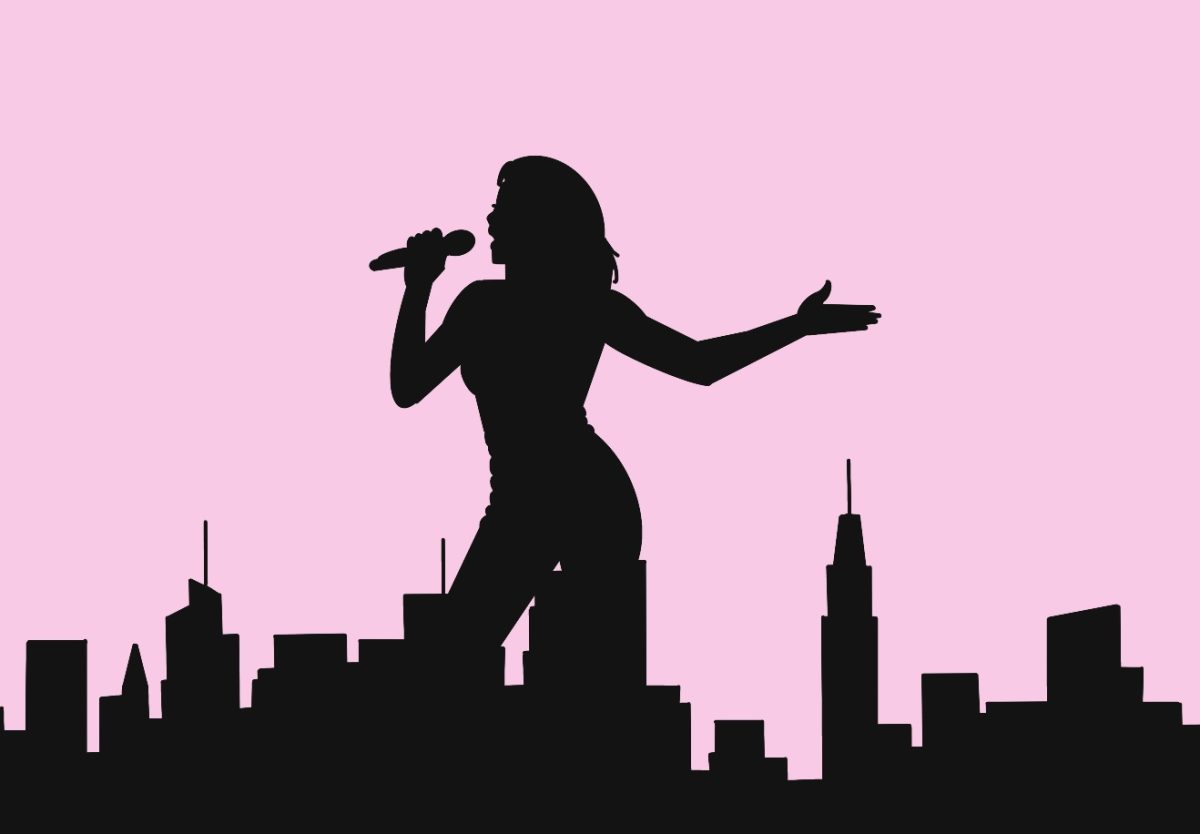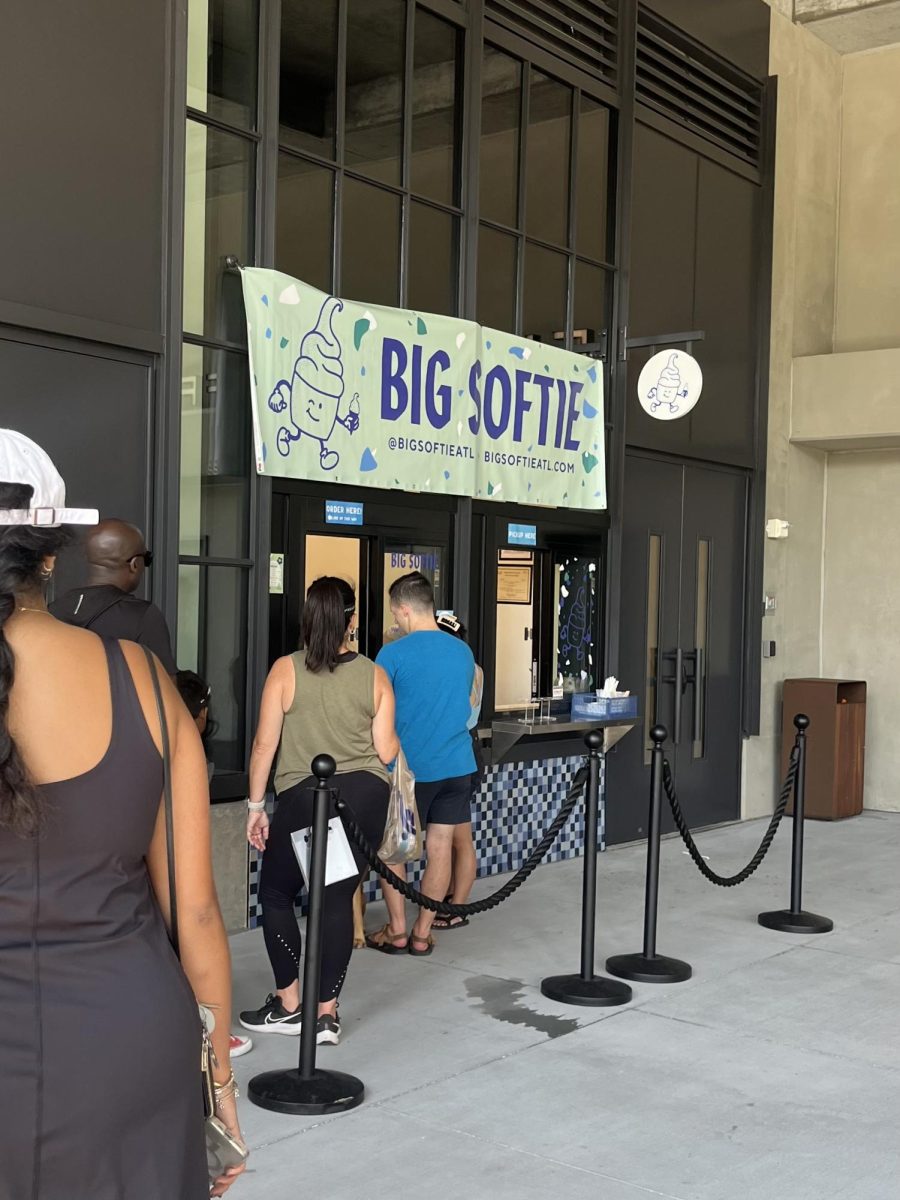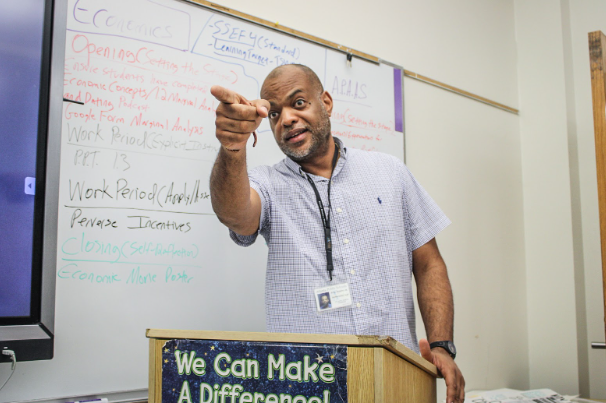
For Fitsum Hailemariam, an Ethiopian immigrant who arrived in the United States 18 months ago, Uber is the means to a successful future. When interviewed, he had only worked one week for Uber, a ride-sharing company that pairs drivers with passengers via a smartphone application.
Hailemariam works another job at a cafe in Midtown, but when he drives his car for Uber, he uses the downtime to study for his upcoming medical examinations. Uber launched in San Francisco in 2009, and entered the Atlanta market in late 2012. Its drivers undergo criminal background checks and passengers rate them based on performance.
“It’s good,” Hailemariam said. “I’m my own boss according to my own time, the pay is good, so it’s pretty cool.”
For Grady freshmen Allie Krasinski and Hannah Stockdale, Uber is just a way to get to and from concerts and parties around Atlanta.
“My parents don’t feel comfortable with me, like, going and then not taking [Uber],” Krasinski said. Stockdale said she likes to use the service because “it’s classy.”
Many of Uber’s passengers view the company as a designated driver, allowing them to drink alcohol without having to worry about driving under the influence.
“A lot of [passengers] are intoxicated,” Hailemariam said. “But people are nice. I’ve never met a rude person so far.”
One Grady senior, who uses Uber to avoid having to drive drunk, estimated that he had taken 12 trips to and from parties and concerts near his neighborhood.
“You just click it and they come find you … which if you’ve had enough to drink is a real convenience,” the senior said. “If you’re drunk and lost—that’s happened to me— like, ‘I have no idea where I am, come get me please.’”
He said that driving while under the influence of alcohol or drugs is prevalent at Grady, and he views Uber as a safe alternative.
“Some people are gonna [say] that it’s giving these kids a cheap way to get to these places where they’re drinking and smoking,” he said. “But at the same time, it’s saving lives by keeping these kids off the street for a few bucks.”
Allie Krasinski’s mother, Mandy, appreciates the benefits Uber offered the four or five times her daughter has used it.
“For me, it’s just the convenience,” she said. “The convenience of having it on my phone, and already paid for.”
Though many at Grady decried Uber because of the price tag, the company’s cheapest option, uberX, fared well in a matchup against traditional taxi companies. According to Uber’s rate formula, a three-mile, 16-minute trip with uberX would cost the passenger $9.71, with no tip expected. The same trip with Atlanta Checker Cab Company would come to $13.85 before the tip.
Uber’s low price tag may come from its currently unregulated status, which has caused legal trouble in other cities where its drivers operate. In February, a committee in the Georgia House of Representatives voted favorably on a bill that would expand taxicab regulations to companies like Uber, calling the stability of the company into question.
Taylor Walker, a Boston University junior and Grady alum, said she had used Uber about six times because it is convenient and efficient.
“I just like the fact that you can pre-determine who’s gonna [drive you], what type of vehicle they’ll be in,” Walker said. “I was in an environment that I wasn’t necessarily accustomed to, so Uber definitely made me feel comfortable.”
A few Grady students understood using Uber to avoid dangerous driving, but disagreed with the idea of high schoolers using it for day-to-day transportation.
“There’s so many other options,” sophomore Skylar Brillante said. “There’s your parents, there’s a bike, there’s a scooter, there’s your feet.”
Sophomore Nicolas Lyman extolled the virtues of a bicycle as an alternative to paying for services like Uber.
“Everyone should bike, man,” Lyman said. “Everyone should bike. The world would be a better place.”
Grady students who use Uber generally use it rarely and for practical reasons. Atlanta riders, however, keep Uber’s drivers busy.
Hailemariam, who plans to remain an Uber driver until September, when he will apply for hospital residency programs, had given about 35 rides in his first three days of work.
“I get tired a lot, but that’s nothing to complain about,” Hailemariam said. “It’s really awesome, for the customers and for the drivers.”






